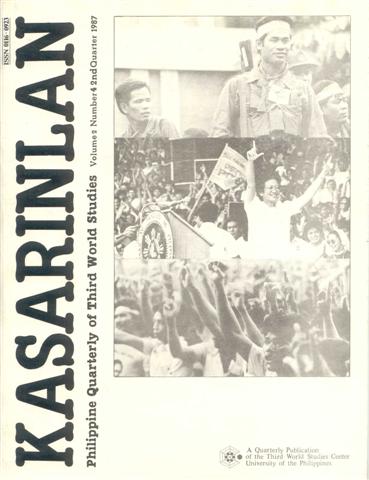The Agrarian Question Confronts the Aquino Government
Abstract
A year after the Aquino administration was established, it has yet to produce results in addressing the call for a firm agrarian reform agenda. Costs of agricultural production and rural poverty levels remained as they were before the February revolution. Agrarian reform simply became one of the many programs inserted in the overall proposals of two agencies, NEDA and PCGR. Both agencies proposal put the land tillers at the receiving end of the reforms but it has yet to be acted upon by Malacañang. A result partly of Aquino’s reluctance to wield the powers of the president’s office and of the conservative liberals and rightwing elements influence to make sure that she does not go too far in reforming society. Agrarian unrest continued with farmers seizing idle and abandoned land or land owned by previous Marcos cronies. Various NGOs, farmer support institutions and concerned individuals organized themselves to come up with an alternative agrarian reform proposal. The indecision and halfheartedness on people’s basic demands eventually paved the way for the Mendiola killings. It was only afterwards that the Aquino administration paid real attention towards agrarian reform. However, there are already pitfalls foreseen in this move as the legislation, the Congress, is dominated by landed elites, there are questions about how their interests can resolve the issue of agrarian reform.
Published
2007-11-28
How to Cite
TADEM, Eduardo C..
The Agrarian Question Confronts the Aquino Government.
Kasarinlan: Philippine Journal of Third World Studies, [S.l.], v. 2, n. 4, p. 33-40, nov. 2007.
ISSN 2012-080X.
Available at: <https://journals.upd.edu.ph/index.php/kasarinlan/article/view/578>. Date accessed: 15 sep. 2025.
Issue
Section
Features
Keywords
land reform; agrarian reform; Mendiola massacre; agrarian unrest
By submitting a manuscript, the authors agree that the exclusive rights to reproduce and distribute the article have been given to the Third World Studies Center.



